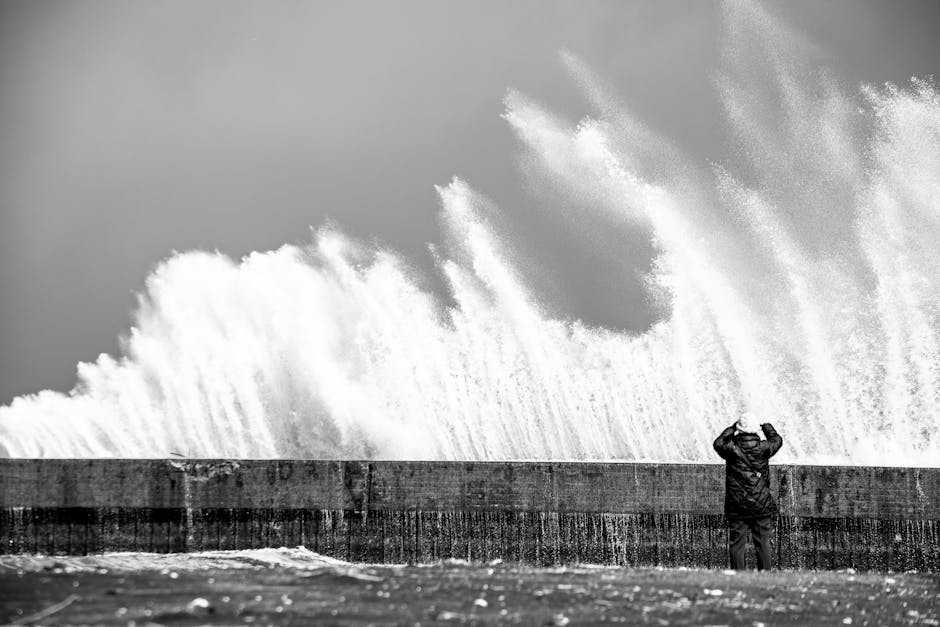The intricate tapestry of the marine environment, encompassing diverse ecosystems from sun-drenched coral reefs to frigid abyssal plains, sustains a myriad of life forms. However, human activities have become increasingly significant drivers of change, often with profound and detrimental consequences. This article delves into the multifaceted ways in which human actions disrupt the delicate balance of the marine realm, offering a comprehensive overview for marine biologists and oceanographers.
A pervasive impact stems from direct exploitation of marine resources. Overfishing, a significant concern, depletes fish populations at alarming rates, disrupting the delicate food webs and impacting the biodiversity of marine ecosystems. Fishing practices, particularly those utilizing destructive gear like bottom trawling, can inflict substantial damage on seafloor habitats, destroying coral reefs, seagrass beds, and other vital nurseries for marine life. The consequences extend beyond immediate species loss; these disturbances impact entire food chains, with knock-on effects on predator populations and the overall health of the ecosystem. Furthermore, by-catch, the unintentional capture and subsequent mortality of non-target species, is a substantial problem, significantly impacting vulnerable marine life.
Pollution is another crucial facet of human impact. Plastic pollution poses a pervasive threat to marine life. Plastic debris, from microscopic fragments to large derelict objects, enters the marine environment via various pathways, including river runoff, direct dumping, and atmospheric transport. This plastic entanglement and ingestion negatively impacts countless species, causing physical harm, starvation, and spreading toxic chemicals. Chemical pollutants, released from industrial discharge, agricultural runoff, and shipwrecks, accumulate in marine organisms, often reaching hazardous levels in top predators. These contaminants can disrupt reproductive cycles, weaken immune systems, and contribute to bioaccumulation, ultimately impacting human health via the consumption of contaminated seafood.
Coastal development also plays a critical role in marine degradation. The conversion of coastal areas to residential or industrial zones disrupts natural habitats, leading to habitat loss and fragmentation. This destruction disrupts the natural flow of nutrients and sediments, impacting the health of adjacent marine ecosystems. Construction activities can introduce sediments and pollutants into the water column, harming marine organisms and impacting water quality. Furthermore, coastal modification frequently alters the natural dynamics of shorelines, decreasing their capacity to absorb wave energy, increasing erosion, and potentially jeopardizing coastal communities.
Ship traffic, while integral to global trade, contributes significantly to noise pollution and accidental spills. The constant noise from ships disrupts the communication and foraging behaviors of marine mammals and other species, particularly those using sound for navigation and communication. Oil spills and other hazardous substance releases from shipping accidents have devastating consequences, contaminating water bodies, killing marine organisms, and impacting entire ecosystems.
Climate change, largely driven by human activities, presents a looming threat to the marine environment. Rising global temperatures lead to coral bleaching events, a phenomenon where stressed corals expel their symbiotic algae, resulting in widespread coral death. Ocean acidification, a direct consequence of increased carbon dioxide absorption by the ocean, negatively impacts shell-forming organisms, like oysters and mussels, as well as plankton, which form the base of many marine food webs. Sea-level rise results in coastal flooding, erosion, and saltwater intrusion into freshwater sources, disrupting both terrestrial and marine ecosystems.
Addressing these pervasive challenges requires a multifaceted approach encompassing responsible resource management, pollution control, sustainable coastal development, and mitigating the effects of climate change. Stricter regulations on fishing practices, promoting sustainable aquaculture, and the development of waste management systems are crucial steps in preventing further damage. International cooperation in tackling issues like plastic pollution and chemical pollution is essential for addressing global environmental concerns. Investing in research to understand the complex interactions within marine ecosystems can illuminate the consequences of human actions and inform effective conservation strategies.
Moreover, promoting sustainable tourism practices and educating coastal communities about the importance of marine conservation can significantly impact human behavior and reduce harmful practices. These efforts, complemented by technological advancements that allow for more efficient waste management and improved fishing practices, can help mitigate the detrimental impacts of human activities on the oceans. Ultimately, a holistic understanding of human impacts on marine ecosystems is paramount to the long-term preservation of the biodiversity and ecosystem services that the oceans provide.
In conclusion, human impact on the marine environment spans a wide range of detrimental actions, from overfishing and pollution to coastal development and climate change. Addressing this complex interplay necessitates a concerted global effort involving responsible resource management, sustainable development practices, and international cooperation. Only through a profound shift in human behavior and a proactive approach to conservation can we hope to safeguard the health and resilience of our oceans for future generations.
